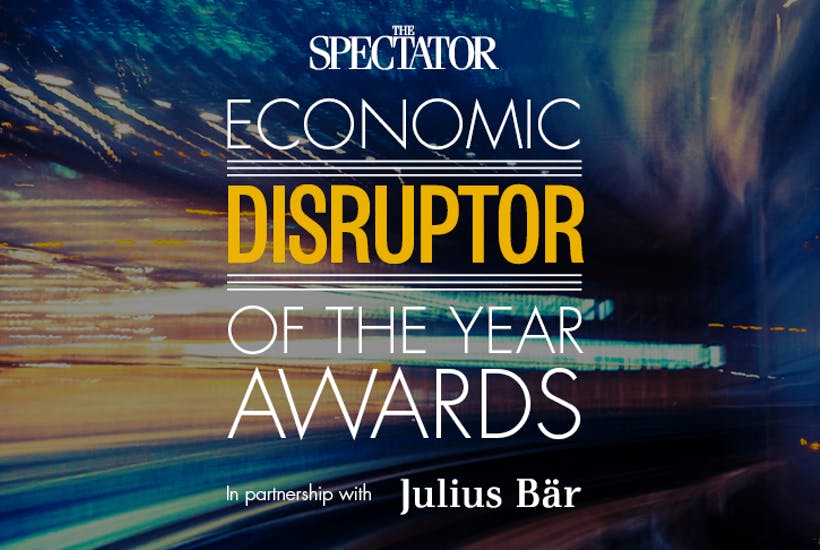Let’s remind ourselves what we mean by ‘disruptor’. A truly disruptive business revolutionises its marketplace by delivering radical improvements in choice, price and accessibility. A disruptor may be a boffin or a bold lateral thinker: Henry Ford did not invent the motorcar any more than Airbnb invented the ‘homestay’, but both created systems that made the product cheaper and more available than ever before — and both count as great disruptors.
But these days ‘disruptor’ status is claimed by all manner of ventures. So in choosing our shortlist for the Award sponsored by Julius Baer, we had to sort the original from the derivative and distinguish those that are already delighting customers from those that are still testing concepts. Overall, however, we’ve been hugely impressed — and the entries tell us much about the UK’s distinctive strengths in innovation.
It came as no shock that their distribution was weighted towards London, simply because that’s where the UK’s biggest clusters of start-ups and capital happen to be. Likewise, it would be condescending to express surprise that so many entries also came from further north and from Scotland and Northern Ireland. A northerner myself, I’m well aware of the innovative power in hubs such as the Centre for Life, Newcastle’s biotech ‘science village’. Or Catalyst Inc, Northern Ireland’s ‘next generation science park’. Or the National Graphene Institute in Manchester, where scientists are developing uses of graphene — the world’s strongest and thinnest material — in everything from energy storage to sports footwear.
So I was expecting great ideas from all corners of the UK. More intriguing was to see which sectors were most strongly represented. Are we still a nation of shopkeepers — and these days, baristas — or are we rocket scientists at heart? Encouragingly, the first would-be entrant I spoke to heads a real-life rocket venture, Reaction Engines — but we agreed their technology was too early-stage for this year’s Awards. More down-to-earth sectors in which UK disruptors are potential world-beaters certainly include fintech and healthcare — so again no surprise that we had many entries in those fields.
Financial services account for more than 10 per cent of UK GDP. But big banks are heavily invested in the status quo and rarely loved by customers: no wonder many fintech ventures strive to make accounts, credit cards and money transfers simpler and friendlier — hence Revolut and Pockit on our shortlist. In the adjacent fields of ‘proptech’ and legal services, we picked Movem, which provides speedy tenant references for letting agents, and Rradar, which uses digital tools to help businesses address legal issues.
Healthcare represents another 10 per cent slice of UK GDP, and the challenges facing the NHS create huge opportunities for disruptors. Entries such as Black Pear Software and Evergreen Life were concerned with making it easier for patients to talk to GPs and doctors to talk to each other, while Echo gives patients control of repeat prescriptions, Surfaceskins makes antibacterial pads for hospital doors, and Touchlight Genetics works at the frontiers of DNA science. We were impressed by others whose work was also too early-stage for this year, such as Helperby Therapeutics in antibiotics and QuantumDX in diagnostic devices.
What else? Speechmatics is in the rising field of speech recognition, Amiqus Resolution is in cybersecurity, Amplyfi is in artificial intelligence and Arctic Shores makes recruitment software. From the auto sector we have Zerolight for 3D visualisations and Carwow taking the hassle out of buying a new car. Avocet and Hectare Agritech represent food-chain technology. Onedox offers a ‘digital dashboard’ for household admin; Slitherine makes gaming software, including wargame simulations; See.Sense makes intelligent bike lights; Peanut is a social network for ‘likeminded mamas’; and Warwick Music makes low-cost trombones.
There were so many others we would like to have shortlisted. What the whole stack tells us is that Britain is still a nation of original thinkers and ardent entrepreneurs — qualities never more important than in today’s uncertain economic times.







Comments